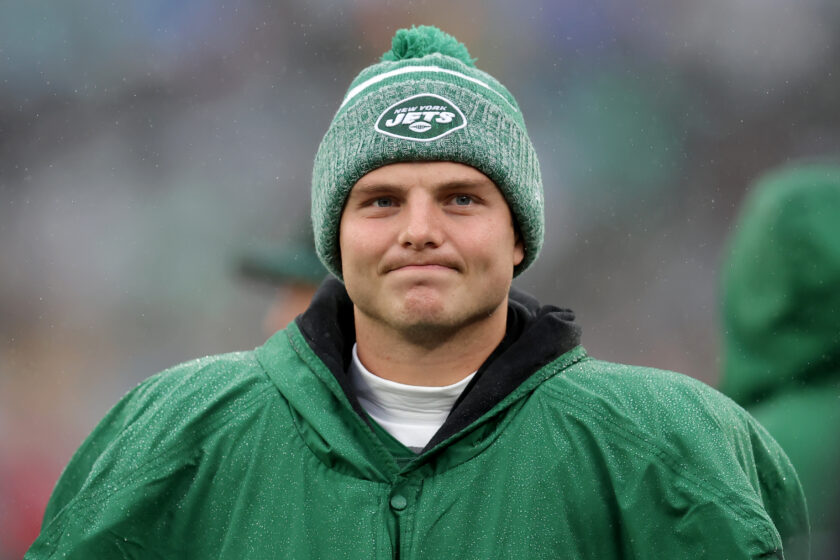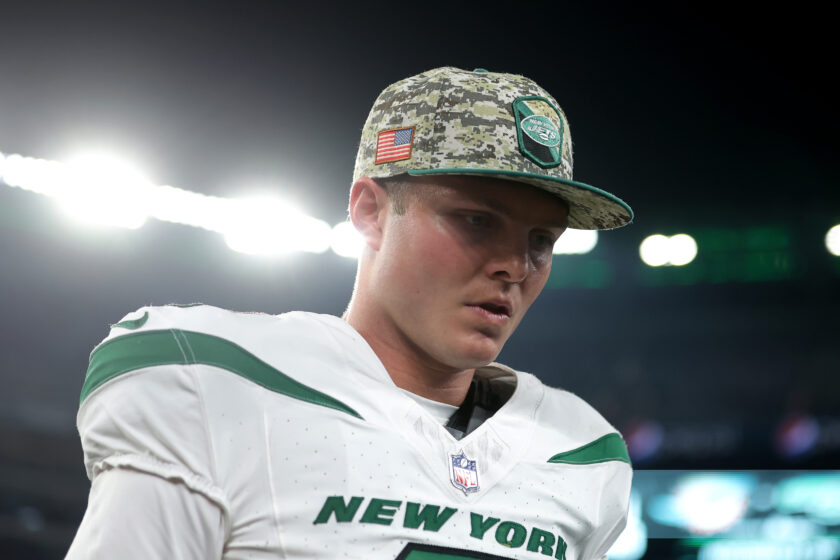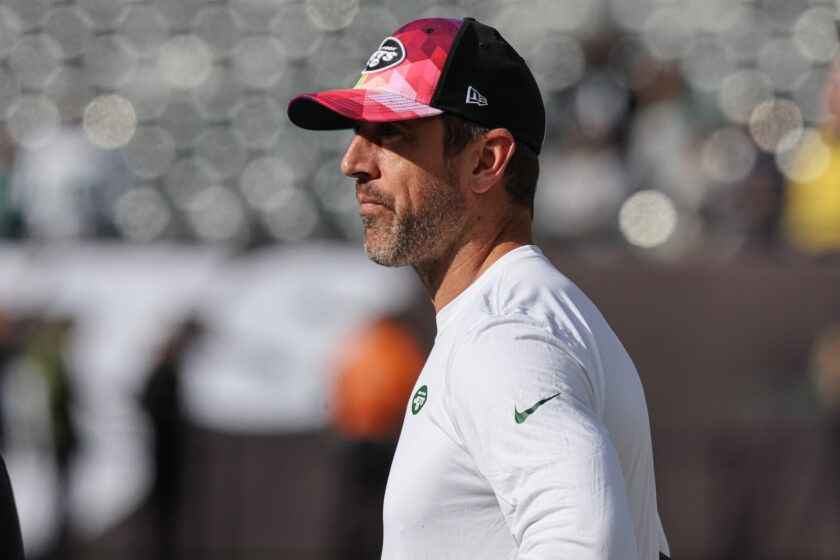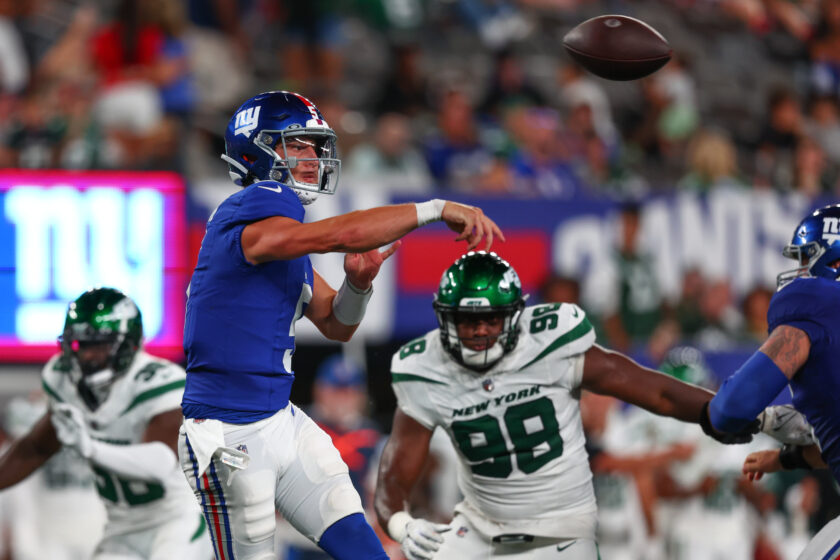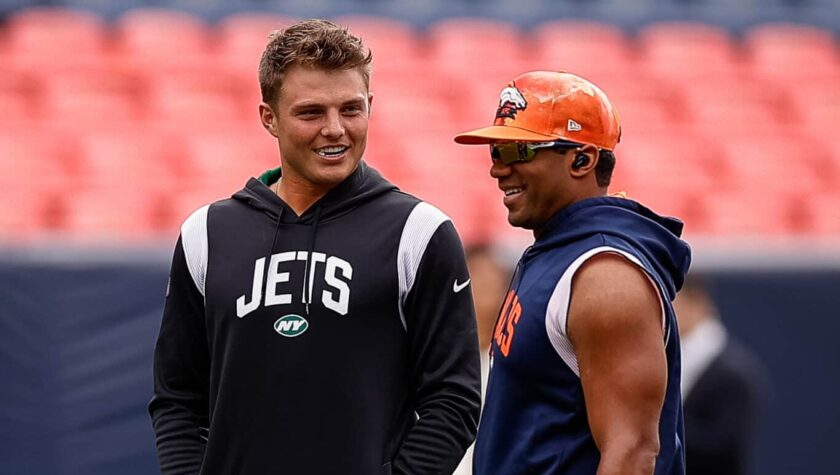Jets training camp preview: 4 critical offensive position battles
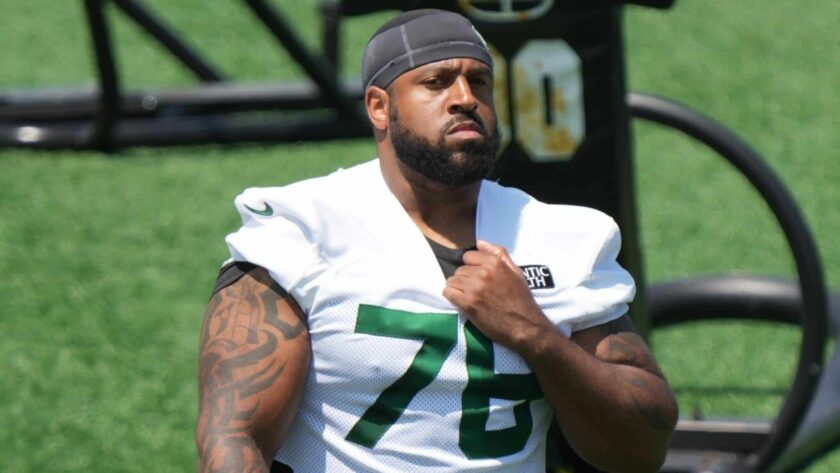
The Jets commence training camp in less than two weeks and new quarterback Aaron Rodgers will be the star of the show.
But he won’t be the only storyline.
The Jets’ offensive unit must resolve four main position battles, each of which will garner a significant amount of attention during camp.
Let’s break down each competition and predict the eventual winner:
Left tackle: Duane Brown vs. Mekhi Becton
The argument for Brown. The veteran, despite turning 38 in August, has remained much healthier than Becton in recent years. The 2020 first-round pick has played just one game over the last two seasons due to various knee injuries.
Until Becton can consistently remain on the field, the left tackle spot is Brown’s job to lose.
The argument for Becton. He’s a much younger option than Brown, and a solid season could lead to Becton taking on the long-term left tackle role the Jets drafted him to assume.
Our take. Becton shocks everyone and wins the job. And if you’re a Jets fan, you should hope this happens.
The youngster is in great shape entering year four. And yes, that’s seemingly the case with every NFL player every year. But Becton’s previous weight issue was, arguably, the main component of his injury issues. So if Becton can at least remain healthy and show he’s capable of manning the blindside job in camp, there’s a good chance he wins it.
Center: Joe Tippmann vs. Connor McGovern
The argument for Tippmann. The Jets drafted the rookie this offseason for crying out loud. In the front half of the second round. Even after they brought back veteran Connor McGovern, who started every game for them last year.
The argument for McGovern. If Tippmann struggles to come along in training camp, at least McGovern has legitimate experience in the starting role. As we just mentioned, he did start the entire season for the Jets in 2022.
Our take. Tippmann will win the job. It’s obvious the Jets were looking to start fresh at the position, or else they would’ve re-signed McGovern much earlier in the offseason than late April.
Backup running back: Michael Carter vs. Israel Abanikanda
The argument for Carter: Abanikanda is a young, fifth-round rookie who hasn’t played an NFL snap. Meanwhile, Carter was here before presumed starter Breece Hall.
If Hall is slow to come back from last season’s ACL tear, Carter is more suited for a starting role than the first-year Abanikanda.
The argument for Abanikanda: He’s a fresh face who this organization obviously values given he’s the more recent of the acquisitions, despite his late-round draft pedigree. And since that’s the case, there’s a legitimate chance the Jets cut Carter, who saw his role in the run game decrease from year one to two.
Our take: The Jets elect to keep three running backs — Hall, Carter, and Abanikinda — plus one fullback in Nick Bawden. So given the experience, Carter initially assumes the second-string running back role, barring any rehab setback to Hall.
Wide receiver 3: Mecole Hardman vs. Corey Davis
The argument for Hardman. He’s a recent acquisition of this regime, as general manager Joe Douglas signed Hardman in March. Plus he’s a dynamic weapon out of the slot who can take pressure off the 39-year-old Rodgers.
The argument for Davis. The veteran, entering his likely swan-song year with the Jets, has the highest cap hit of anyone in the receiver room at $11.16 million. It’s actually the third-highest cap hit on the team.
The Jets may not have a choice but to give Davis a significant role unless he and the team can agree on a pay cut or contract restructure.
Our take. The Jets have two months until the regular season begins, so there’s still hope they can somehow lower Davis’ cap hit. Realistically, they should be able to do that, which should open the door for Hardman to assume a WR3 role and for Davis to be the top reserve.
Follow ESNY on Twitter @elitesportsny

